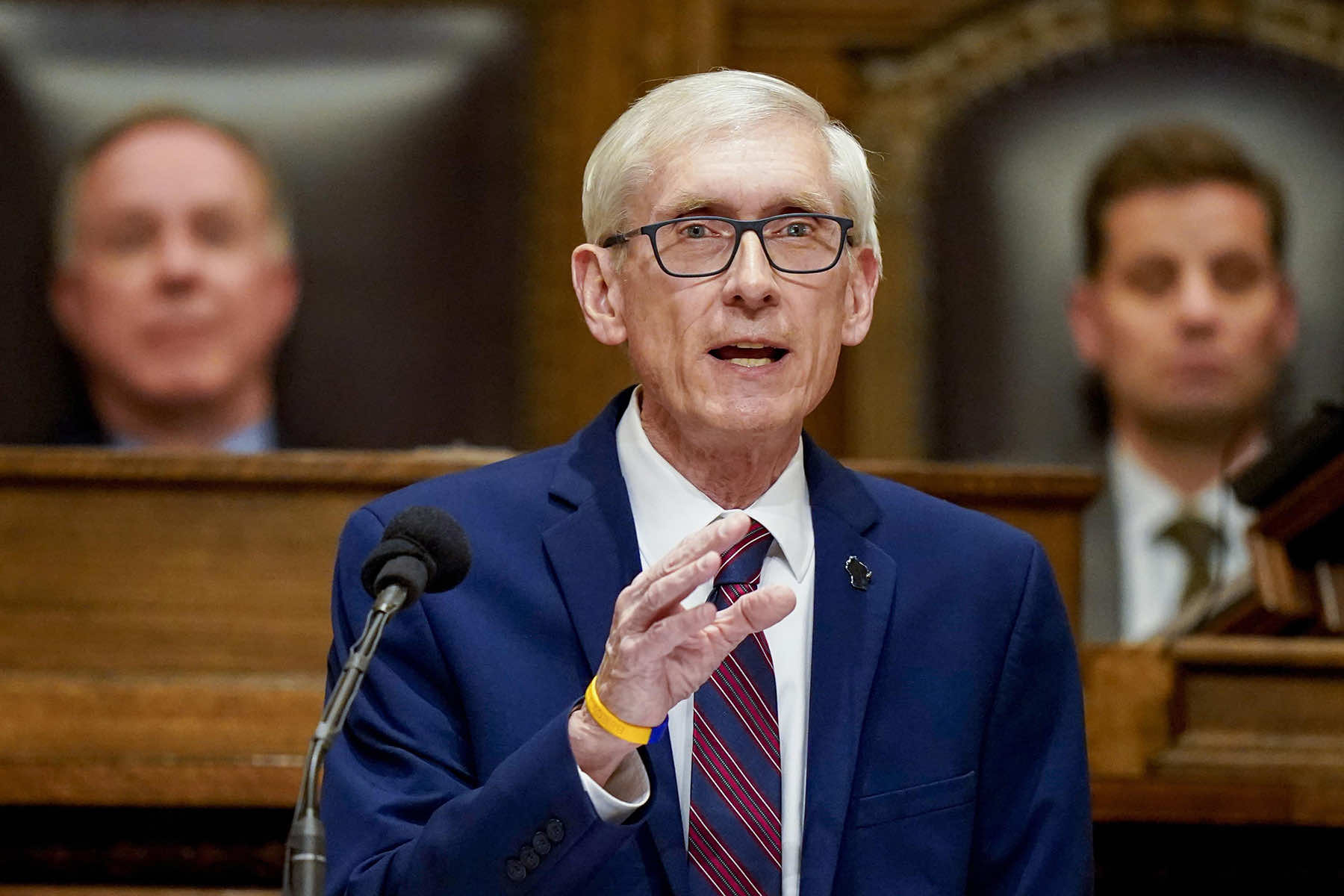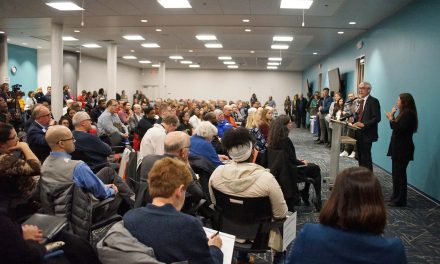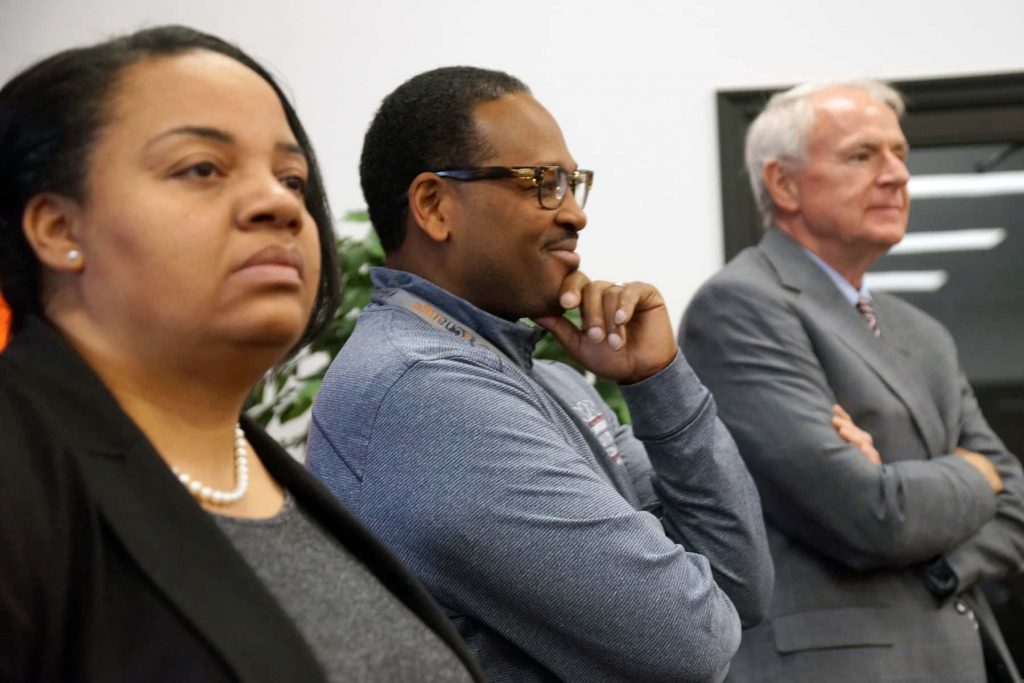
Eyeing a state surplus topping $6 billion, Governor Tony Evers and the Republican-led Wisconsin Legislature are both already putting down markers ahead of deliberations in 2023 on the state’s next biennial budget.
They are doing so in rare circumstances. “The state is in a much better position this year to shoulder the increasing costs of ongoing state and local services and make new commitments,” according to a report released on December 6 by the Wisconsin Policy Forum.
At the same time, budget projections are by their nature “freighted with uncertainty,” the report stated. Budgets themselves rely on forecasts of the economy in general and state revenue in particular that look two and half years ahead. What happens with inflation and interest rates as well as the impact of outside events, such as the war in Ukraine and the see-saw of energy prices, could upend the conditions that are assumed when the budget is enacted.
Based on projections for state tax collections and working from the state’s current spending levels with what the report describes as routine adjustments, but leaving out all new spending that state agencies are requesting, the report projects revenues would exceed expenses by $6.8 billion.
“The excess revenues amount to just under $3 billion, or 15.3% of spending, in year one of the budget and more than $3.8 billion, or 19.6% of spending, in year two,” according to the report.
The analysis calculates $1.14 billion in new spending requests in the first year of the 2023-25 biennium and $2.48 billion in the second year — a little more than half of the projected surplus.
Evers will not officially present his proposed budget for another month or two. But already the early previews of the administration’s spending plans offer a touch of déjà vu. Several state agencies are seeking policy changes that the governor included in his previous proposed budget nearly two years ago and the Legislature’s GOP majority rejected.
In his first term, Evers saw his two proposed budgets extensively rewritten by the GOP majority on the Legislature’s Joint Finance Committee (JFC), with several items high on the Democratic governor’s priority list scratched from the start.
After the Department of Administration released its own budget projections last month, the JFC’s Republican leaders foreshadowed a repeat performance next year.
“The projected balance does not give the Governor a blank check as he puts together his budget proposal,” said the committee’s co-chairs, Senator Howard Marklein (R-Spring Green) and Representative Mark Born (R-Beaver Dam), in a joint statement. “Instead, it gives us flexibility to fund the programs and agencies that are necessary for prosperity in Wisconsin while cutting taxes to benefit all Wisconsin taxpayers.”
The Legislative Fiscal Bureau, the nonpartisan agency that provides budget analysis for the Wisconsin Legislature, outlined the state agencies’ budget requests in a 230-page report on December 1.
All branches of state government are in the report: the departments under the administration of Evers as well as the state Legislature, the court system, and the independent state offices headed by elected officials — the Department of Public Instruction, the Department of Justice, the Office of the State Treasurer and the Office of the Secretary of State.
The executive branch agencies’ latest budget requests include a number of proposals that the Republican majority deleted from Evers’ 2021-23 draft budget.
The Department of Health Services proposes that Wisconsin expand its Medicaid program under the federal Affordable Care Act, making adults with incomes up to 138% of the federal poverty guideline eligible for coverage. Expansion would make the state eligible for a federal subsidy covering 90% of the additional cost.
The Wisconsin Policy Forum report said that expansion would save Wisconsin $392.1 million in the upcoming budget and in the years to follow. A one-time federal incentive included in the American Rescue Plan Act (ARPA) would give the state an additional $1.16 billion over the next two years.
The Legislature’s GOP leaders scratched Medicaid expansion from Evers’ first two budgets and spurned several other attempts by the governor to expand Medicaid during his first term.
“If lawmakers cut the Medicaid expansion, as they have in previous years, then that would mean $1.55 billion less for the state general fund in the next budget,” the Policy Forum report stated.
The Department of Public Instruction’s budget proposal also renews requests that lawmakers turned down two years ago. One of those would be to boost the state’s share of special education funding.
Federal law requires local school districts to fully fund special education. Advocates have called for the state to reimburse school districts for 90% of that cost, while the current 2021-23 budget covers a little less than 32%. DPI’s 2023-25 budget request calls for 45% funding in the first year and 60% in the second year and a path to 90% by the 2026-27 budget year. It also seeks to revise state law so that the budget item is required to be “sum sufficient” — obligating the state to appropriate whatever amount of money is necessary to meet the obligation.
“We can accelerate and need to accelerate that timeline,” said Chris Thiel, Milwaukee Public Schools legislative policy manager. “The revenues are there to move to 60% right away.”
Funding adjustments for per-pupil state aid to school districts have also not kept pace with increased costs, Thiel said. “To get back on pace with catching up to inflation over this four-year period, you really need about a $1,400 per-pupil adjustment in this coming budget.”
Among other items that state agencies are seeking after being denied in the last budget:
- The Department of Revenue is asking that lawmakers legalize the sale of marijuana for recreational users, authorizing the department to issue licenses to sellers and imposing taxes of 15% at the wholesale level and 10% at the retail level. The budget request estimates the state could collect $166 million a year in taxes with the change.
- The Department of Workforce Development (DWD) wants the Legislature to expand eligibility for Wisconsin’s family and medical leave law, which protects the jobs of workers who must take time off to attend to their own or family members’ illness.
- DWD is also asking for higher penalties against employers who wrongly classify employees as independent contractors and as a result fail to pay into the state’s workers compensation and unemployment insurance systems.
- The Department of Safety and Professional Services is asking for more employees in its building permit and occupational licensing divisions, both of which have been the subject of complaints by members of the public and lawmakers for delays in carrying out their duties. The Legislature sharply reduced the increase that Evers requested in 2021.
The Wisconsin Policy Forum report noted that in citing alternatives, the organization is not advocating for specific policies. Nevertheless, the current situation has expanded the state’s options, it added.
“When writing budgets, lawmakers typically face agonizing choices between meeting the needs of the present and preparing for future challenges that are hard to predict, like a potential recession,” the report concluded. “This time, state officials may have the financial wherewithal to accomplish both.”
Erik Gunn
Andy Manis (AP)
Originally published on the Wisconsin Examiner as Wisconsin gears up for a budget debate in the new year
Donate: Wisconsin Examiner
Help spread Wisconsin news, relentless reporting, unheard voices, and untold stories. Make a difference with a tax-deductible contribution to the Wisconsin Examiner













